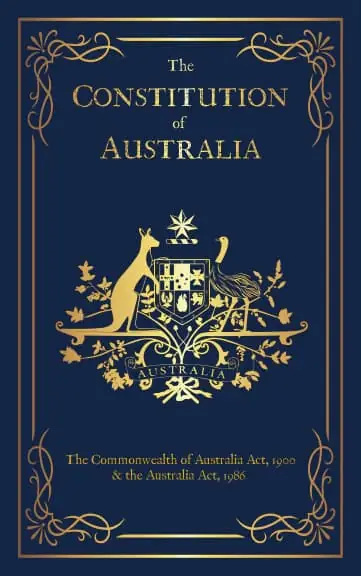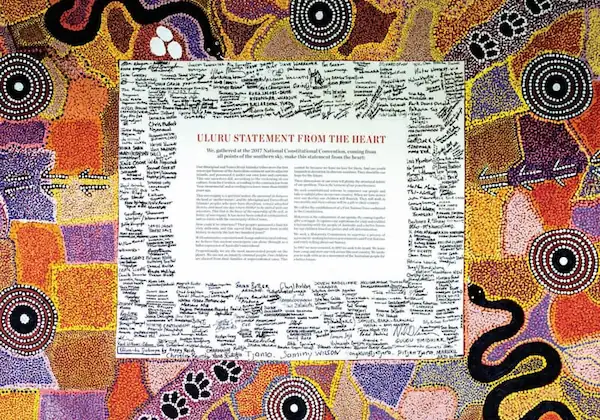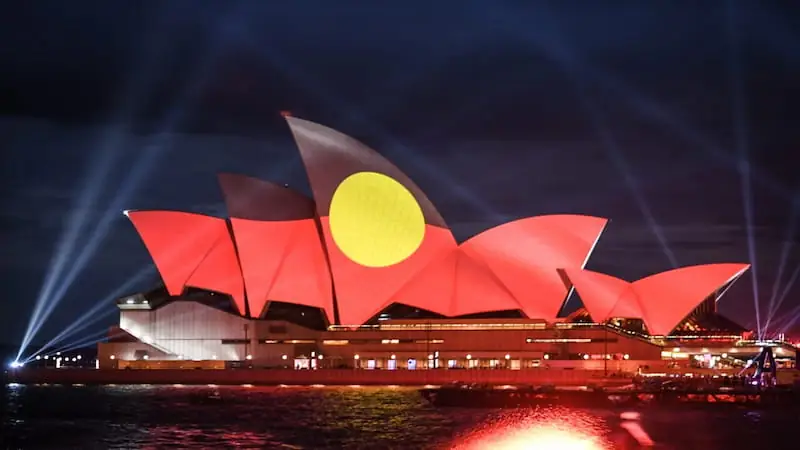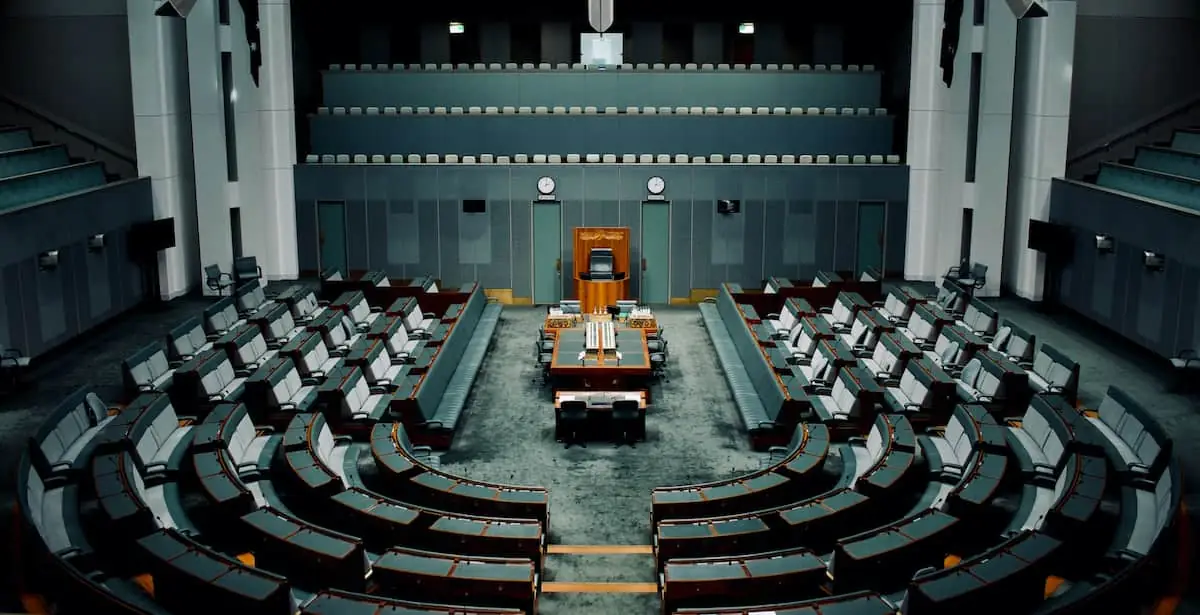In the next 6 months Australians are required by law to vote in a national referendum. We will be asked if we support the creation of an Indigenous Voice to Parliament. This Voice to Parliament will be an advisory body comprising Aboriginal and Torres Strait Islander people, to represent the views of Indigenous communities to federal government.
I have made the decision to vote No in the Voice to Parliament referendum. And yes, I do feel somewhat guilty for doing so – but that is part of the issue, and probably the reason why I decided for the No vote.
There is so much about the proposed referendum that I DO agree with, and quite a bit I would love to see implemented. But it includes some things I also really struggle with and find incredibly divisive.
So, I find myself both torn and very frustrated that I am having to make this decision!
Let me explain…
Note: Now that the referendum has passed, here is my follow-up post on the lessons we should learn.
What is the Proposed Indigenous Voice to Parliament?
This is a huge vote on a very large issue. I was really surprised by the number of family and friends that did not really understand what was being asked of them. There were even some that didn’t know there was a referendum coming up!
If you want to understand more about what the Indigenous Voice to Parliament is and the referendum, then this piece from ABC News is a good start.
Fortunately, I have a little more time on my hands than most (being Financially Independent and “retired” – check how we managed that here!). And I do like to keep up with current affairs and what is happening in the world around me.
I strongly believe if we take the time to reflect and understand ourselves and our fellow humans more, then life becomes a whole lot easier. So I have tried to take the time to understand this issue, and what is being asked of us in the referendum.
Things Aren’t as Simply as They Seem
Every now and then an issue comes along that is a lot deeper than what it appears on the surface. I think the Voice to Parliament is one of those things.
I remember first discussing it with a friend, and her response was “of course Indigenous Australians should be in the constitution!”. She then said, “I’m surprised that they aren’t in there already!”
I think this summarises how many, if not most people, are seeing the issue. And that is the way the ‘Yes’ vote campaign is promoting the cause. It’s about time Indigenous Australians were recognised in our constitution and they should have a Voice, a ‘say’ in how parliament decisions affect them.
When you consider those things in that context, I find it hard to understand why anyone wouldn’t vote ‘Yes’. Of course, First Nations people should be recognised in our constitution, and of course Indigenous Australians should have a say in how things affect them.
But like all things, it’s not as simple as that.
Key Background Reading
Let’s have a look at the key documents that provide a little more insight as to what this is all about.
In addition to the video above, there are three documents that everyone should read before they vote;
- The Australian Constitution,
- Uluru Statement from the Heart, and
- Indigenous Voice Co-Design Process.
You can download your very own copy of the Australian Constitution here (I mean who wouldn’t want to 😝).
Check this web site for all the information of the Uluru Statement from the Heart, and here is a plain text copy of the actual statement wording.
And finally, here is a copy of the Indigenous Voice Co-Design Process Final Report.
Yes, I am suggesting we will need to do our homework before the referendum. We are being asked to change the very document that details how we operate as a nation – so to me it is super important that we understand what that means.
So, what are these documents?
The Australian Constitution

The Australian Constitution is the simple blueprint detailing how we manage ourselves as a nation. It is super boring, but it should be. It simply provides the structure of our government and how it should operate.
It details what powers are divided between the federal and state governments and importantly outlines the rights and protection of the Australian people. Like our right to eat vegemite whenever we want (not really, but maybe it should).
Fortunately, there is a summary upfront of only a few pages, so you do not need to read the whole thing.
The point is the Constitution is already for ALL Australians. If you are an Australian citizen, then you are included. The 1967 referendum changed the constitution to include Aboriginal and Torres Strait Islander peoples.
The key thing to be aware of is, it is this very document we are being asked to change – again.
The Uluru Statement from the Heart
The second, and probably most important document is the Uluru Statement from the Heart. It is the basis from where this proposal came from, to include a Voice to Parliament.
It is an incredibly beautiful and important document, which should be mandatory reading.

It breaks down 3 requests to the Australian people that Indigenous Australians would like to see implemented.
- Voice
- Treaty
- Truth
This would form the strongest path to reconciliation and bringing our nation together, both the thousands of years of indigenous culture and history, then European settlement, and more recent multicultural migration.
The first of these ‘requests’ is of course the Voice to Parliament.
Indigenous Voice Co-Design Process
The final document, which is by far the hardest to read, is the Indigenous Voice Co-Design Process. This is a series of recommendations around how the Voice may be constructed and operate. It covers things like;
- The structure – who should sit on it and where they should come from.
- How the Voice may be built from the regions, then states, then nationally.
- What its role should be, and what it should and should not be focusing on.
The interesting thing is there is no other document that has been released with any detail covering how the Voice may operate. It was commissioned by the Liberals (yes, the same group who are now against the Voice) and Labour has not released any updates. But Labour has said they are not sure if this is the structure they will follow?!
I love how politics can make something straight forward appear as clear as mud!
I don’t suggest you read this whole process report, not unless you have trouble sleeping at night. It takes me back to my days of consulting and ‘peer reviewing’ reports while trying not to fall asleep!
But it does indicate how complex this could and will become. For example, there is a suggestion that every state would need to have its own voice, which could be further broken down into regional voices.
Like all things political, you can see how this will blow-out into something huge and possibly overwhelming to manage. But we don’t really know, as there has been zero details revealed as to how this would all work, and how much or how little of this report would be adopted.
Focus on the Uluru Statement and Summary Constitution
Ok, that’s a lot. And of course, I know there are very, very few people who would have the time to read any of the above.
But I do strongly suggest reading the Uluru Statement, and the Summary of our Constitution at least. I think that gives a good background on what we are being asked in the referendum.
So What is the Referendum Really About?
Now to the serious part – Let’s be very clear about what we are being asked to say ‘Yes’ to.
This is NOT just about giving Indigenous Australians a ‘Voice’. That part is actually really easy (I’ll come to this…).
It’s NOT just about recognition in our constitution, as the First Peoples of the Nation. Again, I think that would be overwhelmingly agreed to by Australia hands down.
This is about adding a racial element to the constitution.
While I didn’t want this to become a racial argument in my mind, the fact is that is exactly what it is. I don’t think there is anything wrong with calling something exactly what it is – and this referendum is racial.
And I hate the fact that it is making us think this way!
Please, let me explain…
Proposed Referendum Question
Let’s break down the proposed wording of the referendum.
A Proposed Law: to alter the Constitution to recognise the First Peoples of Australia by establishing an Aboriginal and Torres Strait Islander Voice. Do you approve this proposed alteration?
Proposed Referendum Question
The first part says it all; ‘to alter the Constitution’. It is the only reason we need a referendum for this. The federal government is capable of legislating for an Indigenous Voice without need for a referendum!
So why are we changing the Constitution?
Proposed Changes to the Constitution
The proposal is to add the following wording into our Constitution;
In recognition of Aboriginal and Torres Strait Islander peoples as the First Peoples of Australia:
Proposed Wording to be added to the Constitution
- There shall be a body, to be called the Aboriginal and Torres Strait Islander Voice;
- The Aboriginal and Torres Strait Islander Voice may make representations to the Parliament and the Executive Government of the Commonwealth on matters relating to Aboriginal and Torres Strait Islander peoples;
- The Parliament shall, subject to this Constitution, have power to make laws with respect to matters relating to the Aboriginal and Torres Strait Islander Voice, including its composition, functions, powers and procedures.
We are being asked to agree to adding a specialist advisory ‘group’ into how our country operates. This is in addition to the sections of government we currently have.
The key issue I have is members of this group (the ‘Voice’) are only allowed to come from one group of people – First Nations People. No one else need apply!
In other words, there will be a part of our government function, consisting of members from one racial background – as per the proposed Constitution wording.
This will be ‘enshrined’ forever in how our country operates (barring another referendum to remove it). So, our children will be allowed to be a member of this Voice or not, depending on their racial background and heritage.
Doesn’t that blow your mind when you think of it that way?
An employer cannot discriminate based on race – it is illegal! And yet we will have a section of our country’s operational structure, built into our constitution, that is based on your racial background.
It just sounds crazy to me when considered this way.
I know there will be those that say, yes but the Voice is ‘advisory’ only and has no say in how our country operates. Then why have it then? It should have an influence, otherwise why have it?
So What Powers will the Voice Have?
We actually don’t know what ‘powers’ the Voice may have, as this is yet to be decided – as per item three in the proposed constitution wording above.
For every legal expert that says, don’t worry the Voice can’t slowdown our government operations etc, there is another that says we may have a real problem. I do not have a legal background, so how would I know who is right or wrong?
What I do know is when there are multiple legal minds with alternate views on the issue, there is a problem. Wherever there is a possible legal argument or challenge there is room for a legal field day.
I can see the lawyers lining up already!
So, we don’t really know how this will all play out.
The Constitution Should be ‘Blind’ to Things That May Discriminate
In my humble opinion, I believe that the document outlining our nation’s operations should strive to be as neutral as possible. It should be devoid of any discriminatory aspects, disregarding references to gender, sexual orientation, age, and particularly racial background.
I know that our constitution is not perfect. The fact that it still refers to God and the Queen clearly needs to be changed at some time – bring on the Republic Referendum! But all this should be around shifting it to be more inclusive, not more divisive.
It does surprise me that at a time in our society where we are so focused on removing forms of discrimination, we would consider adding one to our constitution. When we are trying our best to be inclusive and treat everyone with equality, why would we carve out things that are racially focused?
How Could It Be Done Differently
There are so many ways this whole process could be handled differently. And I know we will all have our own views. So, for what it’s worth here are mine.

Implement the Voice to Parliament Immediately
I have never understood why this hasn’t been done already. If it is to make the difference for the lives of Indigenous people, like the ‘Yes’ Vote promotes, then why hasn’t it been turned on already?
The government can legislate this without any further input from the Australian People (no referendum required).
Given it is likely that Labour will hold power for at least two terms, then there was zero chance of the Voice being removed by a future government, for at least 6 plus years. Plenty of time to get things right, make a difference and prove its worth.
I’m sure no future government would remove something that is so high-profile and making a measurable positive difference in people’s lives.
Change the Constitution to Recognise the First Peoples of Australia
Yes, I do think it would be amazing to have wording in our constitution talking about the background of our Nation – the good and the ugly. Most importantly, we should have recognition that the Aboriginal and Torres Strait Islander peoples were here first.
The interesting thing is that polling on this alone has above 80% acceptance (as high as 90% by some polling). But it drops to 50% or less when the element of a constitutional enshrined advisory body to the Executive Government is included.
Small Changes over Time leading to Big Results
It would have been easy to get a Voice to Parliament, and separate recognition into the Constitution. While it doesn’t 100% meet the original request of the Uluru Statement from the Heart, it comes bloody close.
People don’t like change. This have been overwhelmingly proven in numerous previous referenda.
This is even more so when we find ourselves in uncertain times – like now (rising interest rates, inflation through the roof etc). People tend to be less ‘generous’ when their own living standards are threatened (human nature unfortunately).
I have learnt that small changes are much easily accepted. If you continue to work on these small changes over time, they can and do lead to something much larger and meaningful.
Final Thoughts on the Voice to Parliament
What makes me sad is how this has all been proposed. What happens if this referendum results in a ‘No’. I can’t begin to imagine what that will mean to our Indigenous Australians. Where do we go to next? How can we as a nation move forward, when it will feel like salt being rubbed into an already open wound?
So yes, I feel very frustrated that our government has put our nation in this position. At the time of writing this the latest poles are showing close to a 50/50 result. So, either way it has managed to divide a nation – not a good thing for a government to do.
Well, those are my thoughts on what is a pretty heavy topic. I’d love to hear your thoughts in the comments below. I think open and respectful discussion at this time is super important!
Until next time.
Cheers,




Leave a Reply